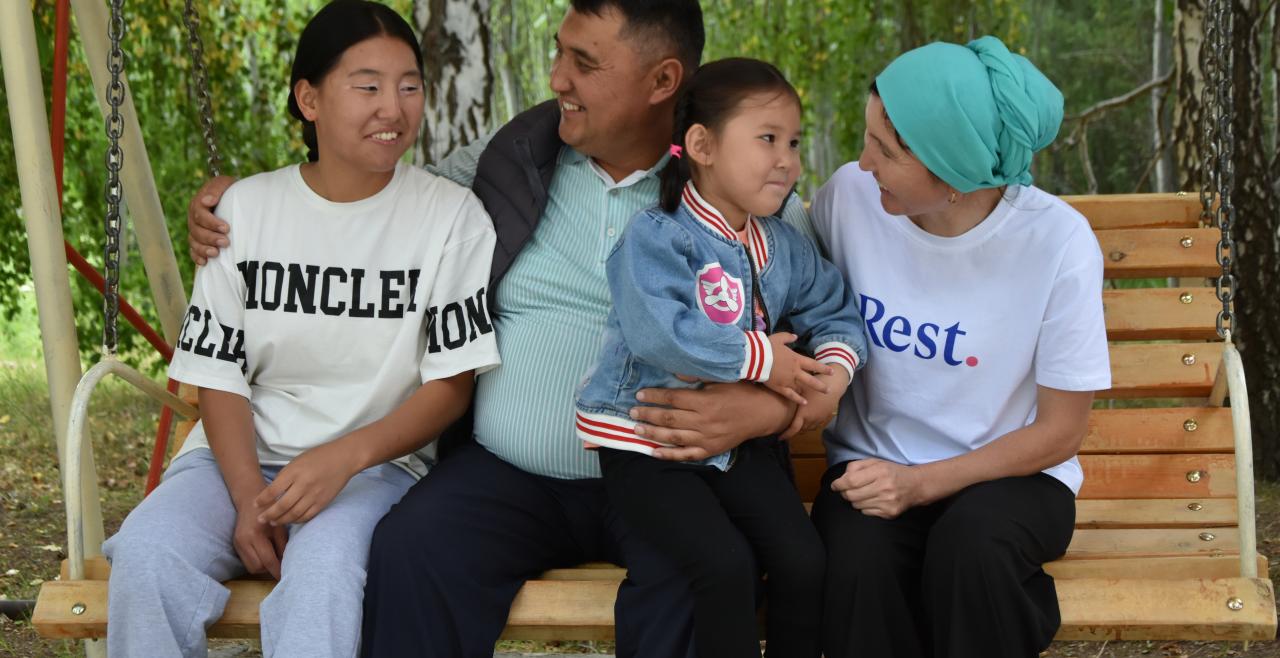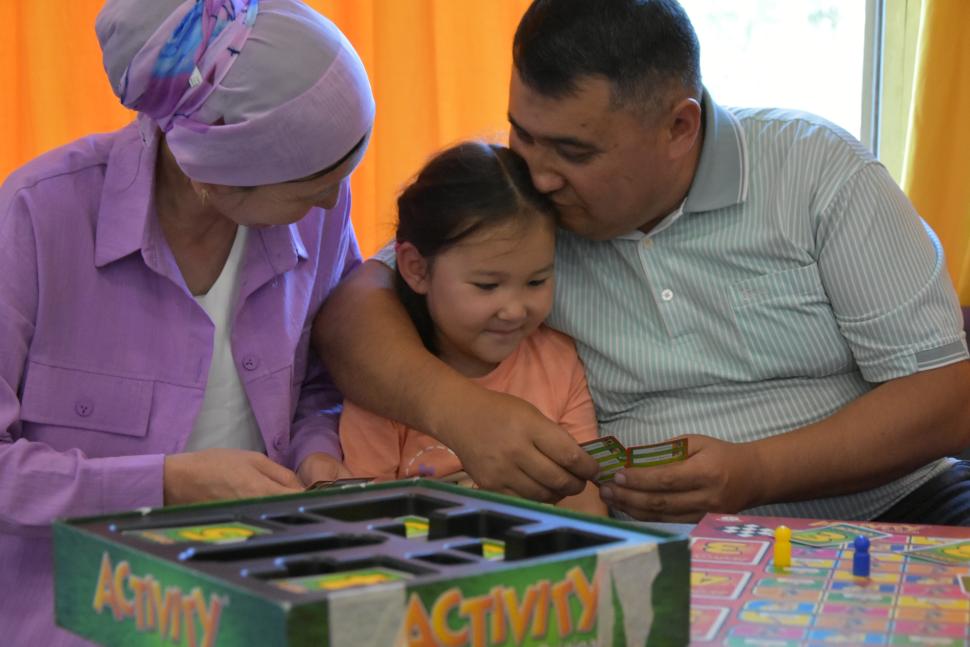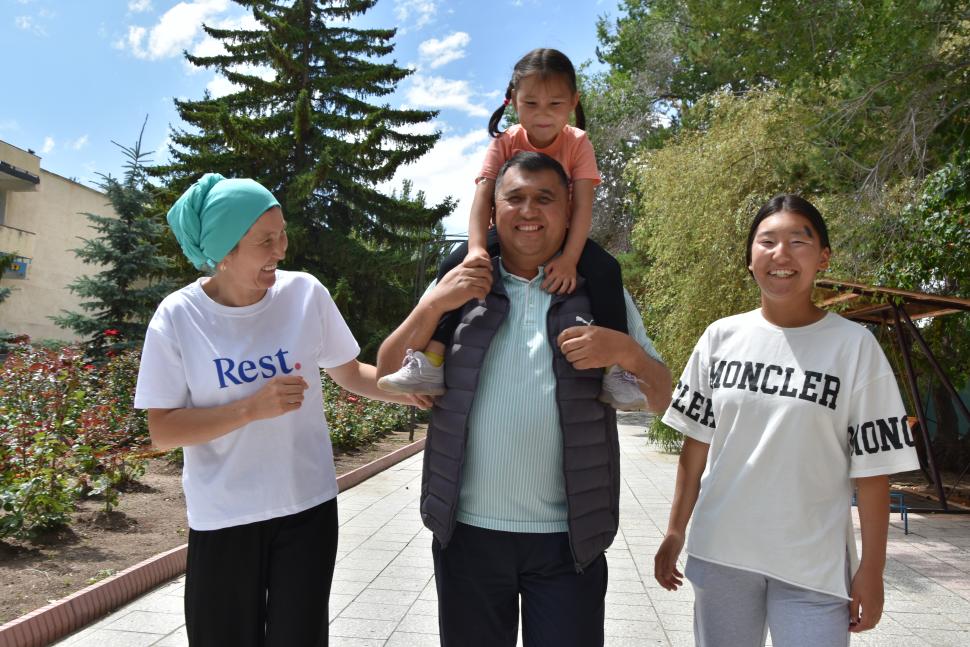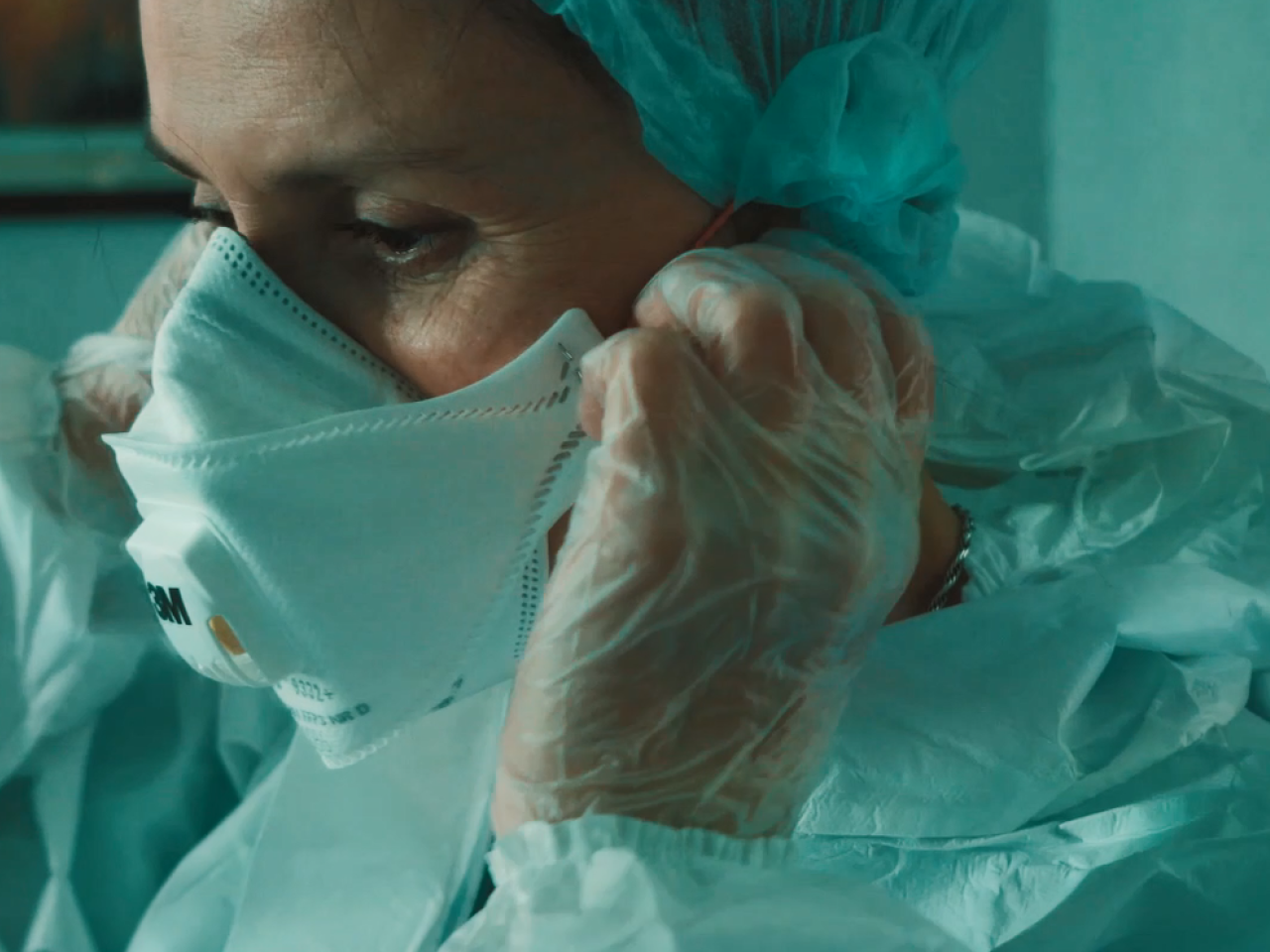Changing social norms to end violence against women and girls in Kyrgyzstan

NARYN OBLAST, Kyrgyz Republic - “This is our new family business. Each loaf of bread is made with lots of love because each of us contributes to making it delicious,” enthuses 38-year-old Gulnaz Almambet kyzy, a new business owner who received Spotlight Initiative-supported gender equality training implemented by UN Women in Kyrgyzstan.
Based on the Gender Action Learning System (GALS), the training aims to reduce violence by talking with communities about the power dynamics in their homes.
“It is considered shameful in our community when a husband does chores like washing dishes and preparing meals as these are considered purely women’s responsibilities." - Gulnaz Almambet kyzy, 38
According to a 2012 country survey, 50 per cent of men and 34 per cent of women believe that a husband is justified in hitting his wife in certain situations. Further, 27 per cent of women and girls aged 15-49 years old who are married or have ever been married, reported experiencing physical or sexual violence by a spouse or partner.
When unpaid work such as childcare and housework is placed predominantly on women, it contributes to unequal power dynamics and can result in an increased likelihood of violence. In 2015, women spent twice as much time as men taking care of children and nearly triple the time on household chores, according to the National Statistical Committee of the Kyrgyz Republic. This burden limits women’s opportunities in formal paid work, resulting in stress and burnout, lower productivity at work and low wages.
Transforming one home at a time
Ms. Almambet kyzy and her husband of 17 years were among more than 2,500 women and 1,600 men who attended community-level GALS training in the provinces of Chui and Naryn in 2021. Working with families, the training provides opportunities for women and men to discuss their relationships and reflect on the social norms that impact their roles in the family.
“Using the GALS methodology, my husband Rakhat and I saw visually how the tree of our family looked and it was not very beautiful in terms of distribution of household labour, family budget and decision-making,” shares Ms. Almambet kyzy. “We both work 40 hours a week, but he used to come home from work and lie on the couch watching TV, while I was responsible for doing all the housework in the evenings. Unfortunately, it is acceptable behaviour in our country.”
“The atmosphere in our family has improved a lot with better communication and a more equal distribution of family chores.” - Ms. Almambet kyzy
“It is considered shameful in our community when a husband does chores like washing dishes and preparing meals as these are considered purely women’s responsibilities. Since early childhood, we grew up with these social norms and beliefs,” she says.
After the GALS training, the couple reassessed their roles in caring for the household and their four children. Now, both Ms. Almambet Kyzy and her husband equally split household chores such as preparing meals and cleaning, as well as outdoor activities like building a new toilet or looking after their cattle.
“The atmosphere in our family has improved a lot with better communication and a more equal distribution of family chores,” says Ms. Almambet Kyzy. “It gave me some time to make my dream come true and open my own business, which has increased our family income by 50 per cent.”
A new narrative
In addition to community-level GALS training, UN Women is also working to change social norms in Kyrgyzstan by working in partnership with the media. Under the Spotlight Initiative, journalists from 17 national media organizations took part in a five month-long assessment on gender sensitivity.
“When a journalist writes an article or prepares material, they must understand that they have a huge responsibility and the news must move people in the right direction,” says Ms. Rakhat Batyrbekova, Editor of the Chui Oblast TV and Radio Company STV, who participated in the training. “The media plays one of the most important roles in promoting gender equality and so a journalist must be gender sensitive. Unfortunately, in our country, such people could previously be counted on one hand.”
“The media plays one of the most important roles in promoting gender equality and so a journalist must be gender sensitive." - Rakhat Batyrbekova, Editor
After the journalists had completed the course, the 17 participating media organizations and the Ministry of Culture, Information, Sports and Youth Policy co-developed and adopted a Gender Code. The code requires that all signatories apply gender-sensitive approaches in their work and media reporting as well as in their workplaces.
“Gender stereotypes and social norms are major drivers of violence against women and girls, but gender equality is largely viewed as a foreign or ‘western’ concept that undermines the traditional roles of women and men in Kyrgyz society,” notes Ms. Anara Aitkurmanova, UN Women Programme Coordinator.
“Our prevention work under the Spotlight Initiative targets all levels of society, and each project helps to reinforce the changes needed to transform harmful social norms, behaviours and practices. Prevention work can sometimes feel hopeless, but it is about changing one family or one media story at a time. And we are seeing positive results,” she concludes.
By Nurgul Beisheeva, Kunduz Zhekshen kyzy and Anara Aitkurmanova




